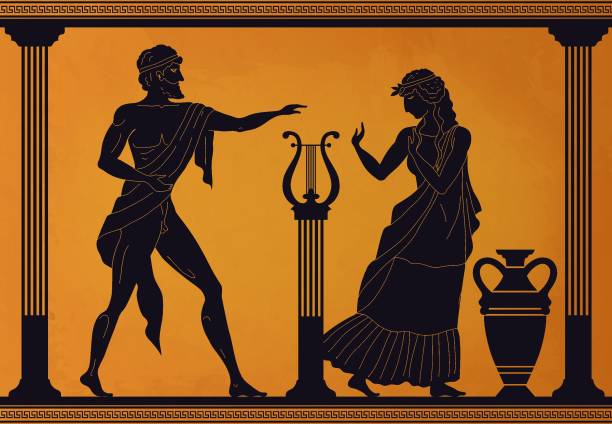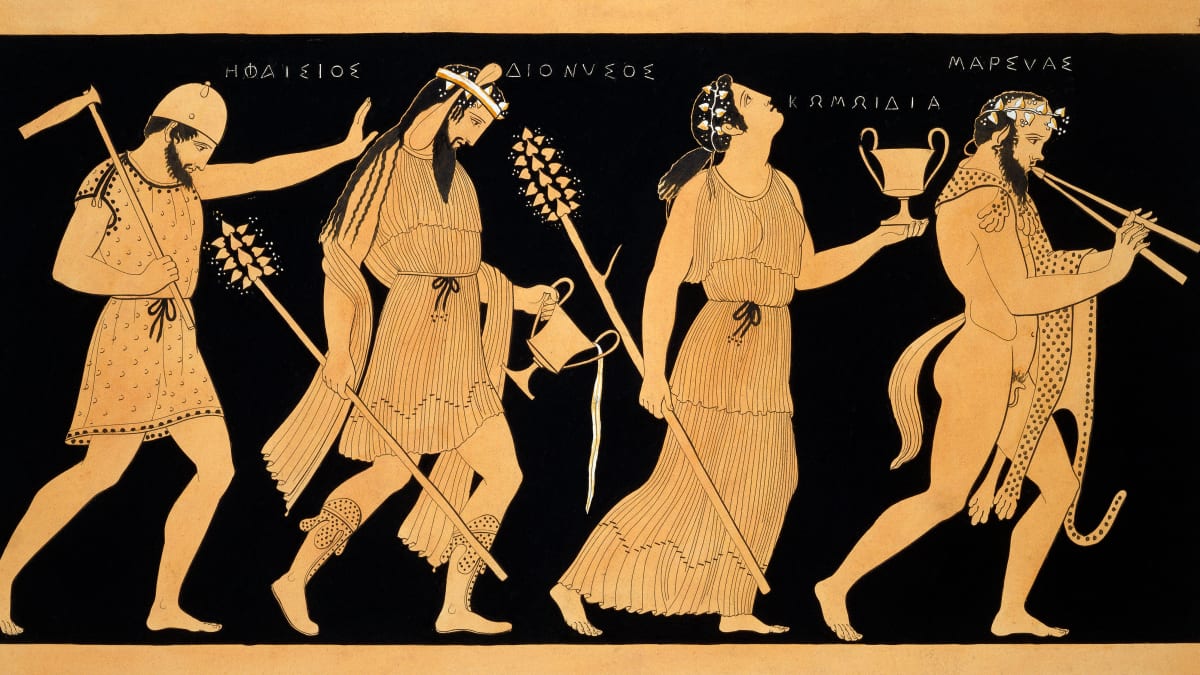Diversity day; A Mythological Approach – Jaz s
I am not educated like the boys who lived next door, and so cannot read or write, which leaves me with the ability to speak. But neither did I learn the art of rhetoric or the wisdom of sophists, and anyway a woman should be seen but not heard. However, I choose to speak the story of a stronger woman.
One who all men believe was a threat to society. One who was a threat because she did not conform to the role women were assigned by the gods. Sacrilege to disobey the gods, you may argue, but what she lacked in piety she made up for in all other things. Her name was Irini.
The kingdom of Mycenae shimmers like the gold tears of Dawn that crash onto the waves of Poseidon. Agamemnon’s palace reflects the grandure of a thousand kings, with chryselephantine statues that could defeat Heracles himself if they were to be gifted with life and pediments that could have been engraved by the hands of Hephaestus. Irini, born the only child of the blacksmith Petros and whose mother died from childbirth, was raised by her caring father in a house not big enough for an ox worthy of sacrifice. Petros taught her the art of welding weaponry, and soon the flames of heated iron danced in her eyes as her passion and skill grew; it was not long before she was better than Petros himself. As Irini aged, she was truly blessed by the beauty of Aphrodite and the wisdom of Athena. Many suitors came for her hand, but none could sway that focused and beautiful mind. We admire a woman for her modesty, but if she does not produce a child by the time the first wrinkle appears on her forehead, she is worthless. Instead of marriage and family, she crafted the finest weaponry with details so intricate you could easily mistake them for the intertwining threads of fate or the labyrinth Theseus escaped. Her life could have been as peaceful as she wanted, if it was not for the ignorance of that young prince of Troy.
Paris was foolish and yet we praise him but Irini was intelligent, proficient in her craft and selfless, but her destiny was already written, cemented like the immortal words of Homer; injustice lies heavy on the shoulders of women, as the heavens do on Atlas’. Agamemnon and his brother Menelaus were possessed by the rage of Mars and victims to the trickery of Eris. Mycenae broke into discord, like chaos had been imprisoned and finally let free. The finest soldiers packed onto ships guided by the winds of Aeolus, women kissed their sons goodbye with tears streaming down their faces, and poor Petros knew what was next for him. You see, as Irini blossomed into the woman she will eternally be remembered as, Petros grew weaker and weaker. His brittle bones could barely hold him up, as he walked gripping onto an almond-tree branch for support. However, every siege needs a skilled craftsman to maintain and create the best weaponry, weaponry that will pierce the hearts of the Trojans as they sleep, as silent as a shadow. This craftsman was Petros. Petros sat Irini down to tell her how he was needed to serve their king Agamemnon and their kingdom, and therefore how he must go with them to Troy. Irini knew this would be the death of her father and that

it was unlikely he would survive the journey, but she did not cry, instead, she devised a plan.
The next morning, Irini packed a cart with a donkey to pull it and told her father that his duty was in Arcadia, to stop him from going to war-torn Troy. She informed her merchant friend, Anatolius, of her plan and sent him with her father to accompany him and turn the cart around in three days when she was long gone. Anatolius agreed and left with Petros, caring for him as much as a mother cares for her new born child, like they were father and son. Once Irini knew her father was safe, she begun gathering her tools before assembling with the men at the docks. Irini, as cunning as Odysseus, snuck onto a ship to Troy, hidden beneath the rough sacks of grain and amphorae of olive oil.
Once the ship had completed its treacherous journey and had landed at Troy, the soldiers were too focused on their orders from great Achilles to notice a young Irini hidden beneath the deck. For two weeks Irini watched, from afar, the men of Greece die from the misery of war or the pure exhaustion caused by the blaze of the wicked sun. It was not until her curiosity got the better of her that one evening she decided to look around the camp. The moon was imprisoned in the impenetrable claws of the clouds, but luckily Selene gifted her presence and shone just enough light for Irini to see but not be spotted.
Cautiously, Irini investigated the camp and stumbled upon some weaponry left outside a soldiers’ tent. On inspection, Irini was appalled by the quality of the craftsmanship and knew in an instance that it was her duty to serve her city as her father would have. Like the wind glides through the trees, unnoticed, Irini collected all the weaponry she could and some resources left beneath the ships and begun using her pale-hands to reflect the work of Hephaestus. All night she welded the best weaponry the whole of Greece has ever seen. Sparks flew across her face, igniting her passion once again. The wind sung in her ears, egging her on. Before anyone awoke, she returned the weaponry to the centre of the camp and watched.

The soldiers woke and saw the glittering pile of armour, swords and spears, creating the meaning behind the beauty of war. Achilles stepped forward and exclaimed how they had been blessed by the gods, but little did they know they were assisted by a mere woman. If only women were accepted for their worth, if only we were allowed to be proud of our skills, which often outmatch those of a man. Irini did this for ten years, staying hidden and learning to hunt, guided by the goddess Artemis, to feed herself as well as those in the camp. It was not until the ransacking of the city of Troy that Irini’s inevitable demise could be seen.
Irini forged her finest armour the night they finished building Odysseus’ wooden horse. The breastplates gleamed in the moonlight, and looked how
ambrosia must taste. In their centres, depictions of an eagle swooping down on its prey, with talons that would be indestructible. Encircling it, the grandest Greek procession, with citizens from all cities around Greece united to pour libations to the gods.
As the battle continued, with Greek soldiers wearing those indestructible breastplates, and the fall of Troy became inevitable, Irini sat on the shore and waited patiently. Suddenly, a group of Trojan women appeared with crying babies in their arms. Their once ivory coloured drapery hung torn from their breasts, blood coated their face like makeup and tears sliced their cheeks like how Artemis’ arrows penetrate the heart of her prey. In the distance, she could hear the screams and supplications of other women and their children. Irini ran over in disbelief, being close enough to see the innocent children being slaughtered by her people in the distance. Irini told the women to hide under the deck of the ship and gave one of them her drapery to show, once they had made it back to Mycenae, that they were Greek. Irini managed to save those women, but as she kept watch whilst they were loading onto the ship, the soldiers that were once in the distance were now staring her in the eyes, like how a lion stares at the prey it is about to kill. Irini explained her sacrifice in order to save her father and how she was the one who crafted the armour, but the blood-thirsty animals slaughtered her on the spot, four against one.
I am the child of one of the women Irini saved that day, and her story was told to me by my mother who was lucky enough to hear it through the walls of the ship. I would not be here today if it was not for the kindness of Irini, and many Greek soldiers could say the same thing if Irini had not sacrificed herself for Mycenae. So I ask you, who are the true heroes? The ungrateful men who fled from the centre of battle to slaughter defenceless women, or the woman who gave up everything to protect her father and her country? Irini was living proof that women can be and are heroes, and her story shall live on forever.















Post Comment
You must be logged in to post a comment.